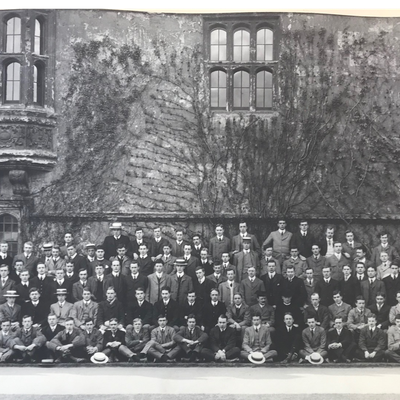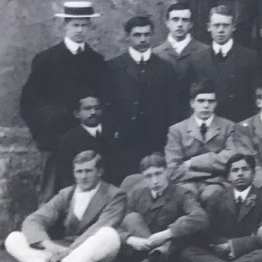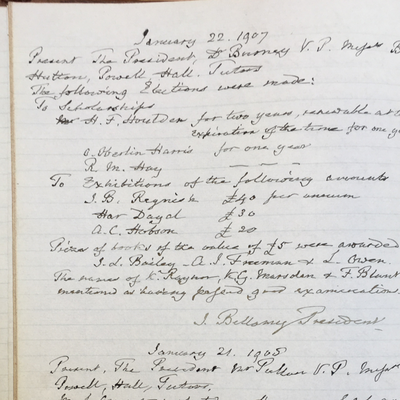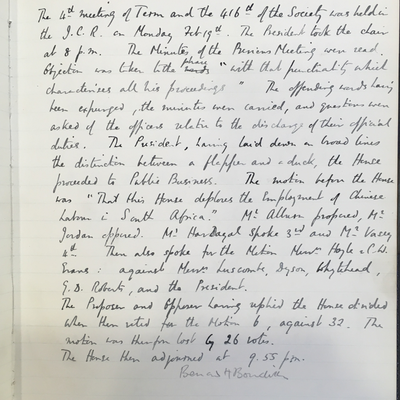Har Dayal, 1884-1939 (SJC: 1905-7)
Har Dayal’s father, Gaure Dayal, was a Reader in Government Service Education at the Punjab University. Following an master’s degree at Punjab University, Har Dayal came to Oxford on an Indian Government Scholarship. He matriculated at St. John’s in 1905. In 1907 he won a Casberd Exhibition (a prestigious College prize worth 30 pounds) as well as a Boden Scholarship (an equally prestigious university-wide scholarship in Sanskrit). While at St. John’s he was an active member of the College Debating Society, as were many of his contemporaries, who would, like Har Dayal, have significant public careers as colonial administrators and anticolonial political figures across the empire. During his time at Oxford, Har Dayal began corresponding with Shyamaji Krishnavarma, another brilliant Sanskritist, who had been Assistant to the Boden Professor of Sanskrit (Monier Williams) at Oxford, and whose anticolonial sympathies Har Dayal shared. Har Dayal was a regular visitor at India House in Highgate, a student hostel founded by Krishnavarma which became a meeting place for Indian revolutionaries and a nerve centre of anticolonial activities in Europe. Notwithstanding his academic successes, in 1907 Har Dayal resigned from his state scholarship on ideological grounds.
Har Dayal returned to India in 1908, and in 1909 moved to Paris. He went on to travel widely before moving to the United States, where he was appointed Lecturer in Indian Philosophy and Sanskrit at Stanford University, California in 1910. In California, Har Dayal was involved with industrial union action and formed links with Indian, Sikh, farmers, with whose support he formed the anticolonial and Indian nationalist weekly, Ghadr and the Hindustan Ghadr party, founded to mobilise opposition to British rule in India amongst the Indian diaspora. In 1927, Har Dayal came back to London to prepare for a doctorate in Sanskrit at the University of London. He received his PhD in 1930 before returning to the USA, remaining there until his death in 1939.[i]
[i] http://www.open.ac.uk/researchprojects/makingbritain/content/lala-har-dayal



